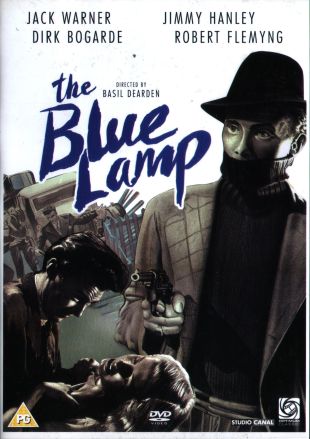
Basil Dearden's The Blue Lamp was one of the more notably successful dramas to come from Ealing Studios, a production company much better known at the time for its comedies. One can see the antecedents that Dearden and screenwriter T.E.B. Clarke drew from for certain elements of their work -- the opening borrows from Alfred Hitchcock's intro to Blackmail, with a shot of a police car pulling away from a station and running in hot pursuit of a vehicle, with a shootout ensuing in which a bystander is killed. From there, we're drawn into a much more subtle and compelling story about the police officers of Paddington Green Station, and the interlocking chain of petty crimes, domestic disputes, and robberies that lead to the murder of a policeman and the hunt for the men who did it -- in this sense, the movie anticipates vehicles such as Detective Story and, even more so, Naked City, in that the real "stars" of The Blue Lamp is the city of London and the Paddington Green police station and its officers. Jan Read and Ted Willis's original story was expanded into a full screenplay by Clarke, with additional dialogue by Alexander MacKendrick (whose Sweet Smell Of Success would emulate in New York's streets and its people this movie's use of London and its denizens). To make the movie work dramatically, however, the producers needed some gifted actors who could carefully melt into their roles. First and foremost was Jack Warner, whose portrayal of Police Constable George Dixon displayed such natural, easygoing charm that the character was resurrected (again played by Warner) for a television series that ran for 24 years. The second was Dirk Bogarde as Tom Riley, the killer -- he's downright spooky with his haunted eyes. Another source of inspiration, evidently based on reality but also paralleling a key element of Fritz Lang's M, concerns the moral set-up of the movie -- the script makes a point early that Riley and his partner Spud (Patrick Doonan) are outcasts from the established underworld because they're too young and too wild and unreliable; after the killing of the police officer, it is the professional criminals who help the police track down the killers, wanting no part of what they've done or helping to leave them on the streets.
